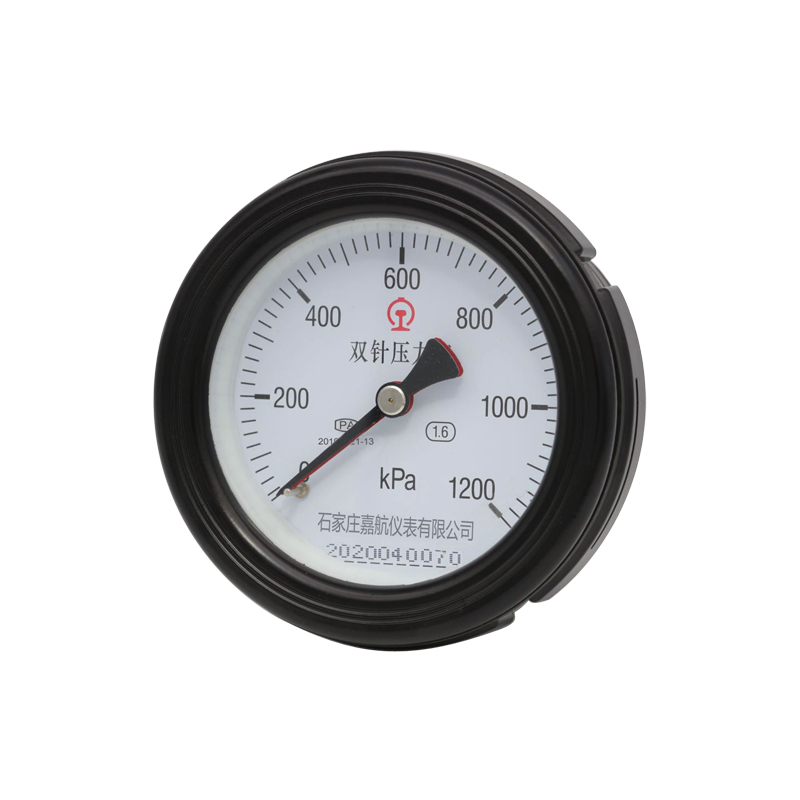
Aug . 17, 2024 16:20 Back to list
Flange Diaphragm Seal Pressure Gauge Provider for Accurate Measurement Solutions
Understanding Flange Diaphragm Seal Pressure Gauges A Comprehensive Overview
In various industrial applications, precise pressure measurement is crucial for the safe and efficient operation of systems. One of the most reliable tools used for measuring pressure in challenging environments is the flange diaphragm seal pressure gauge. This article delves into the significance, functionality, and the suppliers of these essential instruments.
What is a Flange Diaphragm Seal Pressure Gauge?
A flange diaphragm seal pressure gauge consists of two main components a diaphragm seal and a pressure gauge. The diaphragm seal acts as a barrier, allowing the gauge to measure pressure without being directly exposed to the process fluid. This configuration is particularly useful when dealing with corrosive, viscous, or high-temperature fluids that could damage the measuring instrument.
The diaphragm, usually made from materials like stainless steel or other alloys, flexes under pressure changes, transmitting the pressure to the gauge. This mechanism ensures that the gauge provides accurate readings while protecting it from harsh operating conditions.
Key Benefits of Using Flange Diaphragm Seal Pressure Gauges
1. Protection from Corrosion and Contaminants The diaphragm seal protects the internal components of the gauge from adverse environmental factors, thereby prolonging the instrument's lifespan.
3. Versatility These gauges can be used in a wide range of industries, including chemical processing, oil and gas, food processing, and pharmaceuticals, where process conditions can be extreme.
4. Ability to Handle High Pressure and Temperature Many diaphragm seal gauges are designed to operate under high-pressure and high-temperature conditions without compromising performance.
flange diaphragm seal pressure gauge supplier

5. Customization Suppliers often offer a range of customization options, including different materials, sizes, and flange orientations to meet specific requirements.
Choosing the Right Supplier
When it comes to selecting a supplier for flange diaphragm seal pressure gauges, several factors should be considered
- Reputation and Reliability It's essential to choose suppliers known for their quality products and good customer service. Online reviews, testimonials, and industry recommendations can provide insight into a supplier's reputation.
- Product Range A good supplier should offer a variety of products suitable for different applications. This range should include different materials, sizes, and pressure ratings.
- Technical Expertise The supplier should have knowledgeable staff who can provide assistance with selecting the right gauge for specific needs. This expertise can include insights into the best materials for corrosive environments or advice on installation.
- After-Sales Support Reliable suppliers offer technical support and servicing options post-purchase. This ensures that if any issues arise, customers can receive the help they need.
- Compliance with Standards The supplier should provide gauges that meet industry standards and certifications, ensuring they are safe and effective for specific applications.
Conclusion
Flange diaphragm seal pressure gauges are indispensable instruments for measuring pressure in challenging environments. Their ability to protect against harsh conditions while delivering accurate readings makes them a popular choice in various industries. When selecting a supplier, it is essential to consider their reputation, product range, technical expertise, and the level of support offered. Choosing the right supplier ensures you receive a high-quality product that meets your operational needs, ultimately enhancing safety and efficiency in your processes.
-
High-Precision 5 Valve Manifold Differential Pressure Gauge Suppliers
NewsApr.29,2025
-
High-Precision Diaphragm Vacuum Pressure Gauges Manufacturers & Quotes
NewsApr.29,2025
-
Omega Differential Pressure Gauges High Accuracy & Durability
NewsApr.28,2025
-
Low Pressure Differential Pressure Gauges Precision Solutions & Quotes
NewsApr.28,2025
-
Digital Diaphragm Pressure Gaauge Precision Measurement & OEM Quotes
NewsApr.28,2025
-
Differential Pressure Gauge China Price High-Accuracy & Best Quotes
NewsApr.28,2025
